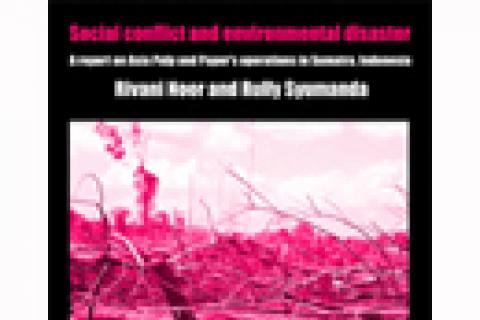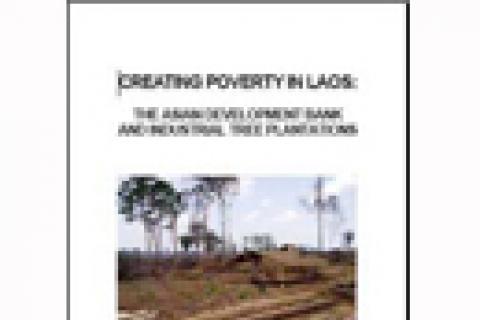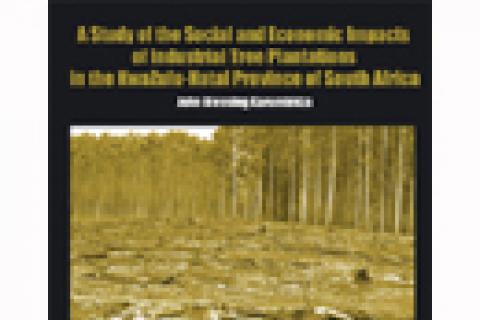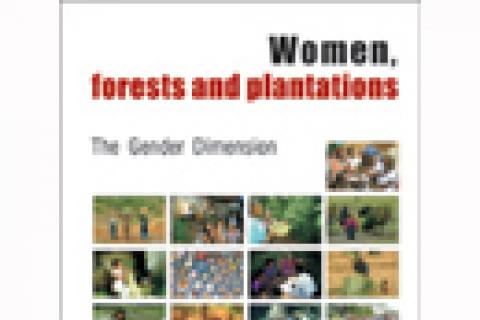Impacts of Eucalyptus Monocultures on Indigenous and Afrobrazilian Women in the State of Espírito Santo.
By Gilsa Barcellos and Simone Ferreira
Women and Eucalyptus. Stories of Life and Resistance
Also available in Portuguese
Publications
By Chris Lang and Timothy Byakola
Selection of articles published in the monthly electronic bulletin of the World Rainforest Movement, addressing the impacts of the oil palm plantations in the forestss.
Oil Palm. From Cosmetics to Biodiesel, Colonization Lives On
By Patricia Granda
Through various government programmes and initiatives, with the support of international cooperation agencies, monoculture tree plantations have been established in Ecuador’s three mainland regions.
By Rivani Noor and Rully Syumanda
By Ricardo Carrere
By Chris Lang and Bruce Shoemaker.
Contents:
· Background: Forests and Rural Communities in Laos
· The Failure of the ADB’s First Plantation Project in Laos
· The ADB’s New Plantations Project in Laos: Repeating the Same
Mistakes?
BOX: The impacts of industrial tree plantations are being increasingly felt by rural communities. Eyewitness reports describe some of these impacts.
· Conclusion
By the World Rainforest Movement
Proponents of industrial tree plantations argue that the plantations are “reforestation”, increasing the area of forest, providing jobs for local people, or reducing pressure on natural forests. This report examines these companies’ operations in Cambodia, the impacts observed to date on the local populations and the environment, and the associated human rights violations.
By John Blessing Karumbidza
By the World Rainforest Movement
Selection of articles published in the monthly electronic bulletin of the World Rainforest Movement, addressing the gender dimension of the impacts in the forests of plantations
Women, forests and plantations. The gender Dimension











